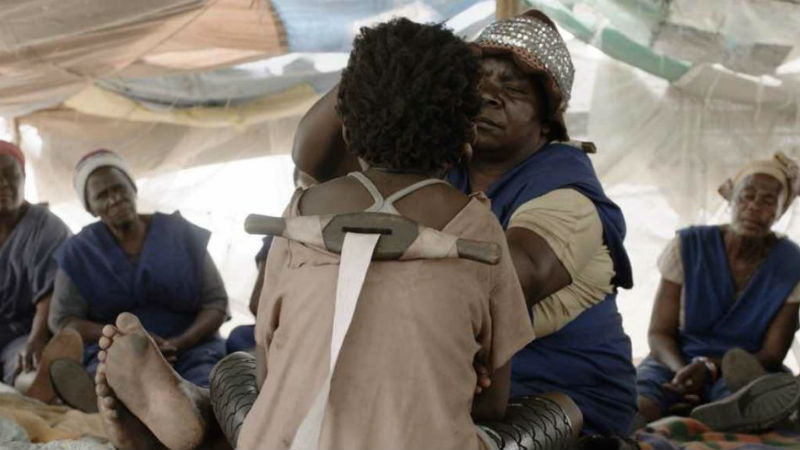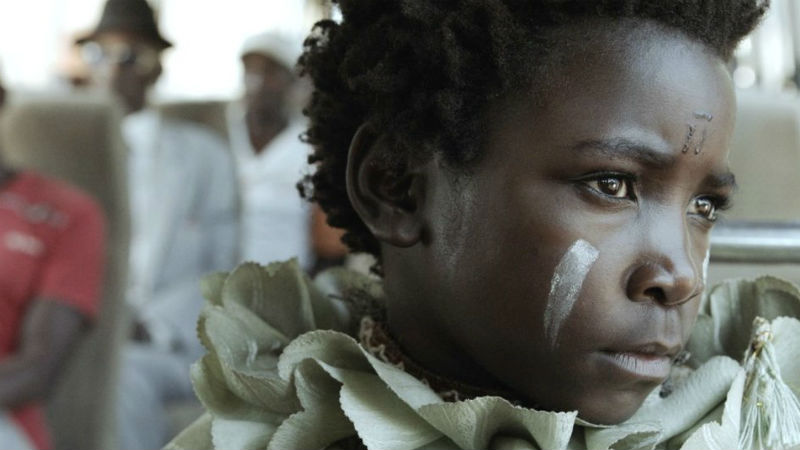QUICK SNAP: LIVE FROM TALLINN
Part British television drama Upstairs Downstairs, part illicit lesbian romance, this film undercuts fears of stodgy, conservative product to deliver instead a story full of fearless performances which, for all its faults, constantly disturbs and surprises. The action takes place in Prague before and during the time of World War I.
he late 19th century, a small town in the Austro-Hungarian Empire. Anka (Dana Droppová) is the bastard child of Eva. The pair are close until in Anka’s teenage years, her mother marries a man with three children who promptly finds a position for Anka to get her out of the way. Thus, the girl commences work as a chambermaid in a wealthy German household in Prague where she’s told to say Yes Milord and Yes Milady whenever anything’s asked of her by the master and mistress of the house.
She arrives when there’s a big social gathering going on, and is asked by Milady (Zuzana Mauréry) if she can sing. This leads to a her confident rendition of a Slavic folk song. You might think this is going to develop into a narrative thread but it doesn’t, an indication of the film’s major weakness: it constantly throws in new ideas some of which then don’t go anywhere, and there are even new ideas coming up in the final reel, for instance that Milord (Karel Dobrý) has been involved with various dodgy dealings (arms manufacture and sales, perhaps?) for which the incriminating paperwork needs to be burned when there has been no hint of this up to that point.
Likewise, she’s warned that the daughter Resi (Radka Caldová) can be difficult, but nothing quite prepares you for a sequence where Resi, on the pretext of not being able to find a brooch, orders Anka to strip off to prove she hasn’t stolen it. This seems to be primarily about humiliating the servants rather than any peculiar sexual fetish, and bears no relationship to their subsequent friendship and lesbian relationship either.
Other ideas thrown up by the narrative ARE however taken up to emerge as major story threads, and there are quite a few of them. Milord is partial to violently slapping those to whom he objects, which sometimes includes his wife should she dare to offer her opinion. As she later explains to her daughter when talking about marriage, you soon learn to keep quiet after you’ve been slapped a few times.
Milord is also partial to seeking temptations of the flesh elsewhere, something one of the older, more established maids Lisa (Vica Kerekes) is keen to exploit, working her was up to becoming his mistress with a house that he’ll pay for. The gardener is upfront about messing around with any woman who will let him, so when Resi is on the verge of marrying Gustav (Cyril Dobrý from All Quiet On The Western Front, Edward Berger, 2022)), she sends Anka to sleep with the gardener to obtain a full report. Anka’s verdict is, bearable and over quickly, but when she attempts to demonstrate this to Resi, it lasts longer, is far more satisfying and develops into a long-running relationship. So much so, that after Resi has birthed her first daughter, Anka becomes the child’s nursemaid until Milady bans her from that position after discovering Anka and Resi sharing a full bathtub together.
The cook Kristina (Anna Geislerová) is branded an old maid by Lisa, although she also possesses midwifery and abortionist skills which makes you wonder what happened to her in her past. Nevertheless, a memorable scene or Resi giving birth in which there’s a real possibility she might die is brilliantly conveyed in a lengthy reaction shot of Anka’s face. A later sequence has Kristina diagnose Lisa as pregnant and perform an abortion, with Anka required to drop a foetus-sized package of one of the city’s bridges into the water just as throughout the film she also empties chamber pots into street drains under the admonition, our employers must be allowed to think their shit smells sweeter than ours.
Resi, meanwhile, comes to despise her husband. He is sheltered and foolish enough to be delighted to get called up for active service in WW1, and Resi is so keen for him not to come back that Anka elicits details of how to curse somebody from Kristina so that Anka and Resi can perform a makeshift witchcraft ritual (basically, walking round a room stark naked with a broomstick between her legs) to curse him. He comes back from the war wounded, an embittered figure who has lost one leg, one eye and, perhaps more significantly, whatever self-dignity he previously possessed.
Anka is religious enough to pray nightly for her mother and the Emperor, so clearly her Christianity (probably Catholic or Orthodox) is of the state- and establishment-bolstering variety. It’s difficult to see what other impact it has on her life.
For all its veering around all over the place narrative-wise, this proves an engrossing two hours, far more so than you might reasonably expect.
The Chambermaid premieres in the 26th Tallinn Black Nights Film Festival. Watch the film trailer below:













